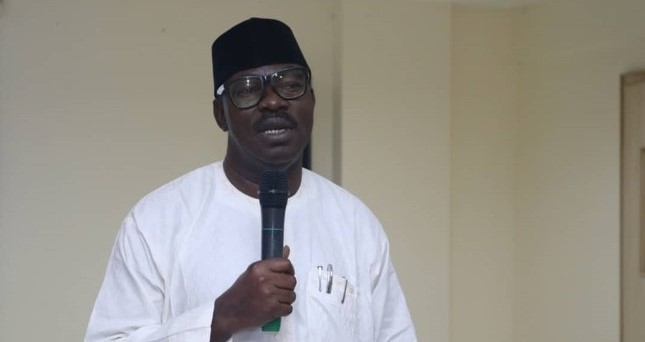We read with utter shock and disbelief the remarks made by the Director-General, National Biosafety Management Agency, (NBMA), Dr Rufus Ebegba, at a one-day workshop, organised by the Environment Media Correspondents Association of Nigeria, where he described those campaigning against the approval of TELA Maize by his Agency as terrorists.

When does speaking the truth and requesting that NBMA saddled with the duty of managing our Biosafety and protecting our biodiversity to withdraw the permits it had granted to a failed product that had being deemed unsuccessful in other jurisdictions, result to the Agency descending so low to attack the critics with such label as terrorists?
We recall that this Agency recently concocted a guideline for biosecurity. It may be a good time to critically examine the Agency to find out if their spate of approvals as well as wilful blindness to several unauthorised imported GM products do not constitute acts of terrorism against an unsuspecting nation.
For NBMA’s edification, we restate our stand that the so-called TELA Maize is a failed product. If the Agency had bothered to do a thorough job, they would have reached the same conclusion.
It might interest Nigerians to know that the United States Department of Agriculture (USDA) found that the performance of the genetically modified maize variety acclaimed to be drought tolerant is poor both in terms of yields and adoption by farmers, when compared with non-genetically modified drought tolerant maize.
In October 2018, the South African biosafety authorities rejected the GM maize for commercial growing as it found that the data provided by Monsanto could not sufficiently prove the claimed drought tolerant and insect resistant capabilities of the maize event. There was no yield nor agronomic performance advantage of the GM variety over the conventional varieties.
In fact, the SA authorities found that the yields of the GM event were inconsistent, and, in some cases, the GM maize had lower yields than conventional maize, according to the kernel count per row and the kernel count per ear data.
Similarly, in November 2018, the Permanent Secretary of the Ministry of Agriculture, Livestock and Fisheries in Tanzania, Mathew Mtigumwe, ordered an immediate halt to all ongoing field trials on GM maize crops stacked with the drought tolerant traits. The trials conducted by the Tanzania Agriculture Research Institute (TARI) were ordered to be immediately stopped and the test remnants destroyed. It is important to note that the Permanent Secretary gave the order after the unauthorised use and release of the trial results by TARI.
In Kenya, this WEMA Project has been rebranded as TELA Maize and is being hyped by the promoters of modern agricultural biotechnology as effective against drought and the Fall Army Warm (FAW) although only a conditional approval has been given for National Performance Trials (NPTs) pending the results of a full and proper Environmental impact Assessment (EIA).
Recently, Mexico announced it would replace 16 million tonnes of GM Corn with Native Varieties and Ban the Toxic Herbicide Glyphosate.
All these compelling cases reinforce and reaffirm what we and other movements, real farmers and peoples all over the world already knew. GM revolution has not met its promises, not lived up to its hype and can therefore be considered failed!
We would continue to denounce the introduction of all unwholesome products, food and seeds in Nigeria and we reiterate that Nigeria is neither an experimental field nor a dumping ground.
We know that the GM Maize is being pushed tactically into Nigeria and the rest of the continent through the WEMA project., now rebranded TELA Maize. South Africa has already rejected a triple stacked variety including the drought tolerant trait. Tanzania cancelled trials in their nation. The drought tolerant trait does not work. It failed in the US. We are not guinea pigs and certainly not the site for dumping junk technologies.
We must call a spade a spade by denouncing the lax manner by which failed technologies are being celebrated in Nigeria and officials saddled with defending our environmental integrity feel bold enough to make flippant assertions when their judgement is questioned.
It is obvious to any sincere observer that Nigeria is becoming a willing tool in the pursuit of destroying Africa’s biodiversity and entrenching industrial and extractivist forms of agriculture.
It is crystal clear that Nigeria and indeed the whole of Africa is facing an onslaught and there is need for concerned citizens and all stakeholders to speak out to save Nigeria and indeed Africa from the shackles of corporate profiteers, whose only interest is markets, investments and profits.
There is evidence of successful African solutions in agroecological agriculture (in the context of food sovereignty) as an alternative to the so-called green revolution model being promoted by the GMO promoters’ cult.
By Mariann Bassey-Orovwuje, Coordinator Food Sovereignty Programme, Friends of the Earth Nigeria and Africa
